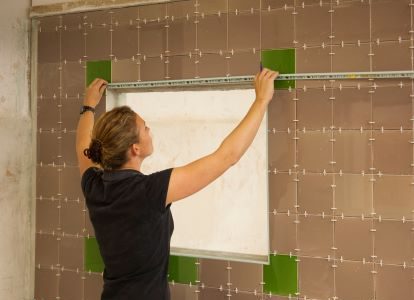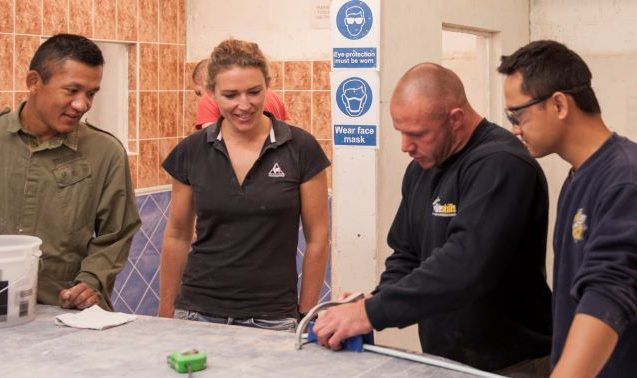It’s no secret that the construction industry has long been an overwhelmingly male-dominated profession.
Despite an endless list of studies clearly pointing towards a diverse workforce performing better in just about every single department, it’s a subject that continues to be an issue across the trade professions.
However, while there is still clearly a very long way to go in terms of truly leveling the opportunities between genders in construction, there are notable signs that we’re beginning to head in the right direction.

More women entering, and considering careers in construction
According to Direct Line, there were an estimated 15,000 tradeswomen working in 2009–fast-forward to 2019, and that number had more than doubled to 33,000.
Another study, carried out by Powered Now in March, found that during the previous 12 months, 21% of women in the UK had considered a career in trade. Of the women polled, the most appealing occupations/expertise areas were handyperson, bathroom & kitchen fitting, decorations, painting & renovations and roofing.
The increasingly positive trend also applies to women already working within construction. The same Powered Now findings revealed that 15% of women currently within the trades had seen their client demand reach a record high during the pandemic.
Solving the UK skills shortage
This recent shift has no doubt been influenced by the ongoing shortage of skilled tradespeople in the UK, which is causing huge issues right across the construction industry as firms struggle to meet such high demand. This push to attract new talent has likely sped up the much-needed process of ensuring the industry is as appealing to women, as it is to men.
Skyrocketing demand for qualified workers also means a career in trade is more appealing than ever before, regardless of gender. The fierce competition between firms to attract the necessary talent translates to a high level of job security that most industries simply cannot compete with, particularly in the wake of the pandemic. It has also had a significant effect on wages, with construction ranking the second highest all-industry wage inflation at a 9.7% increase, just behind financial services at 11%.
What happens next?
While these are welcome signs that the industry is finally moving forward, archaic stereotypes are still proving detrimental in terms of the wider landscape. A survey of 1,000 British schoolchildren, commissioned by Local Heroes, found only 13% of primary school girls aged 6-11 chose trade roles as a potential career.
Overhauling these preconceptions has to be a joint effort right throughout the construction industry. British Gas is one of the businesses attempting to make a difference, after it revealed fresh plans to encourage women to join its workforce, declaring it wants half of its next 1,000 apprentices to be female.
“It’s predicted that the UK will need almost two million new engineering, science and technology professionals by 2022, and with women making up over half the population the statistics clearly show a massive gap in gender representation,” the company said.
“Our sector is clearly male-dominated, and as industry leaders, it’s our responsibility to change that.”
At Able Skills, we understand the vital role we play as a training provider, in ensuring women feel actively welcomed and encouraged into the construction industry at an early stage. If you’re interested in pursuing, or learning more about a career in construction, our team would be happy to advise.

Give us a call on 01322 280 202, request a brochure or pop into our training centre for a chat.